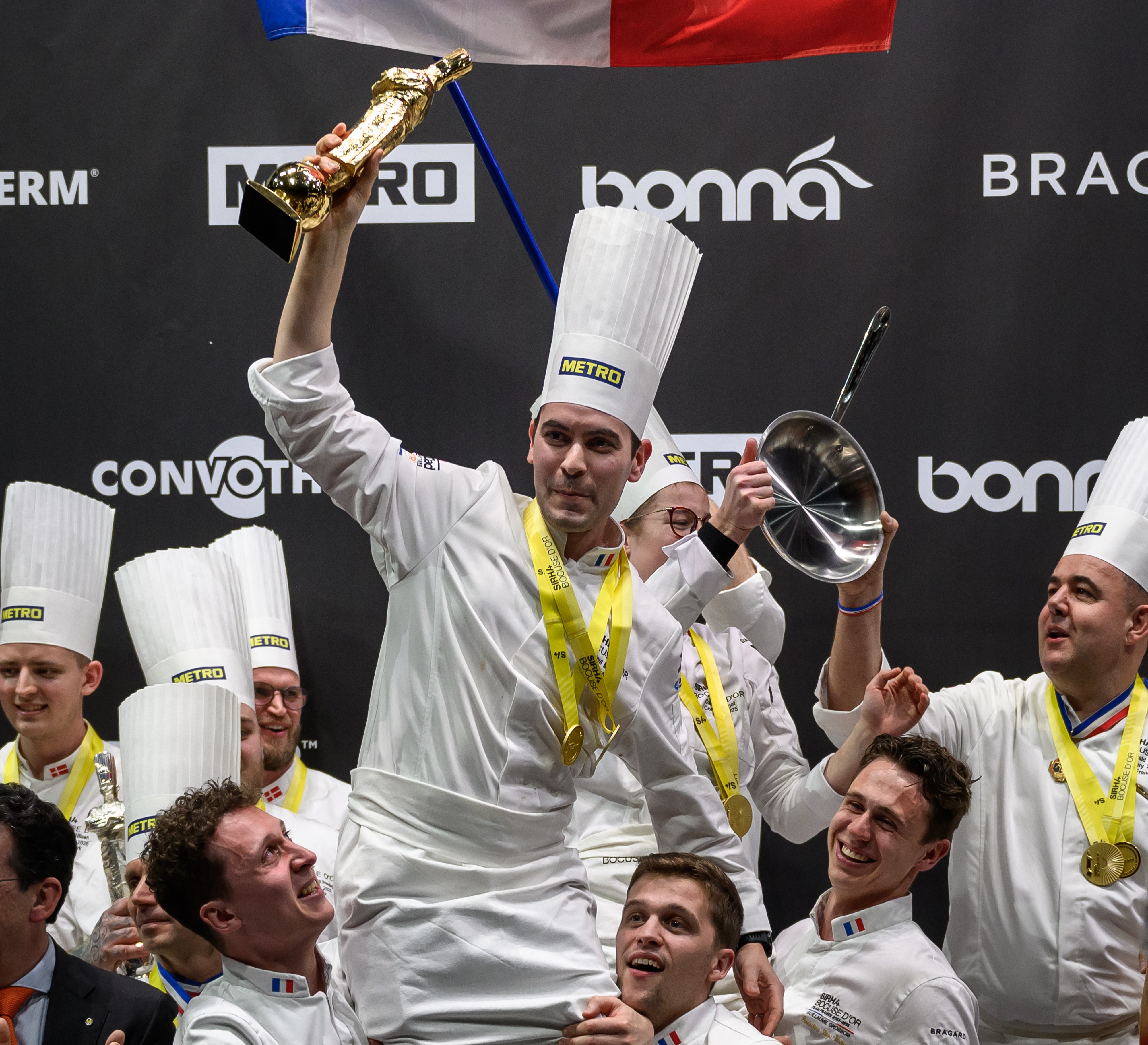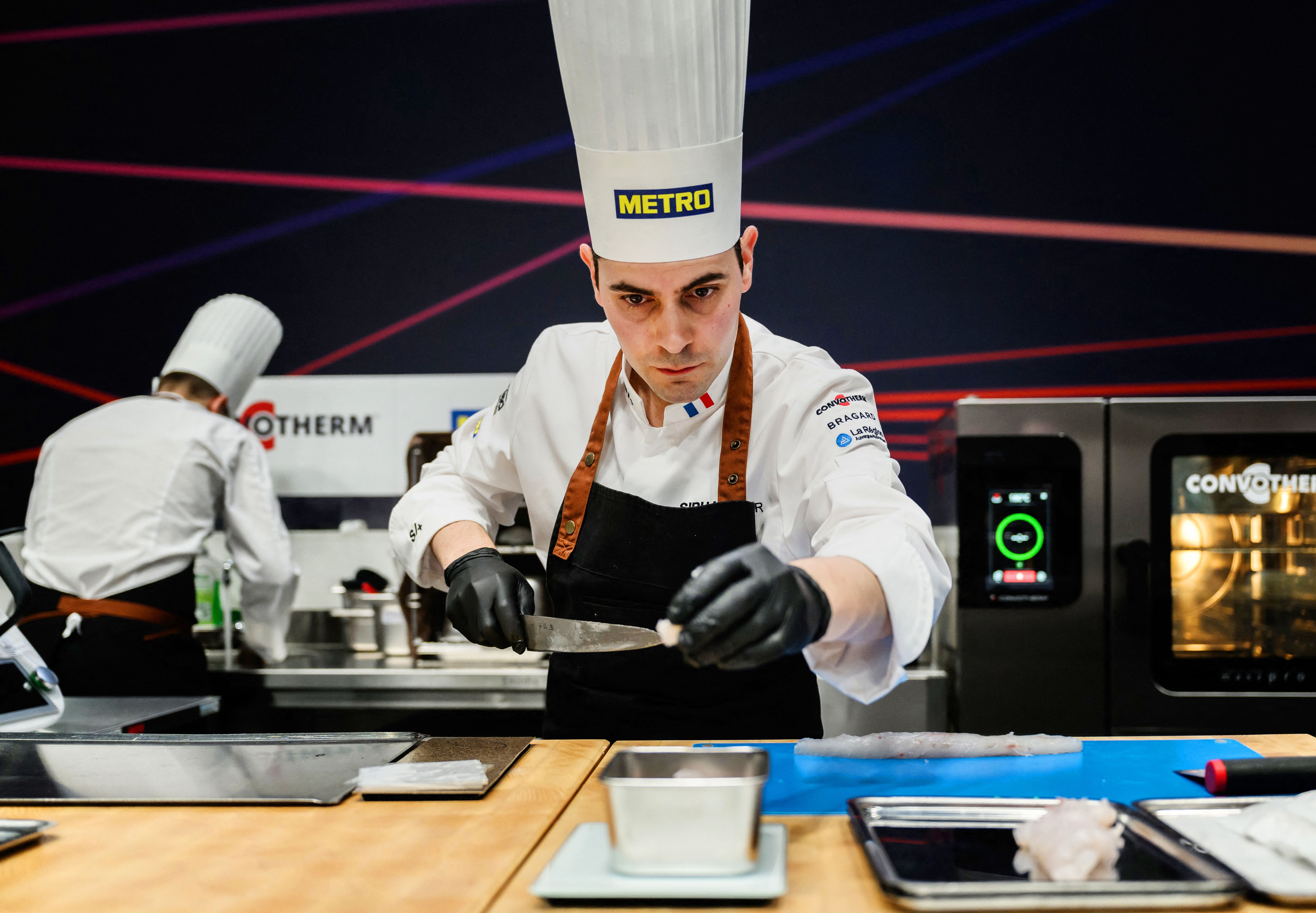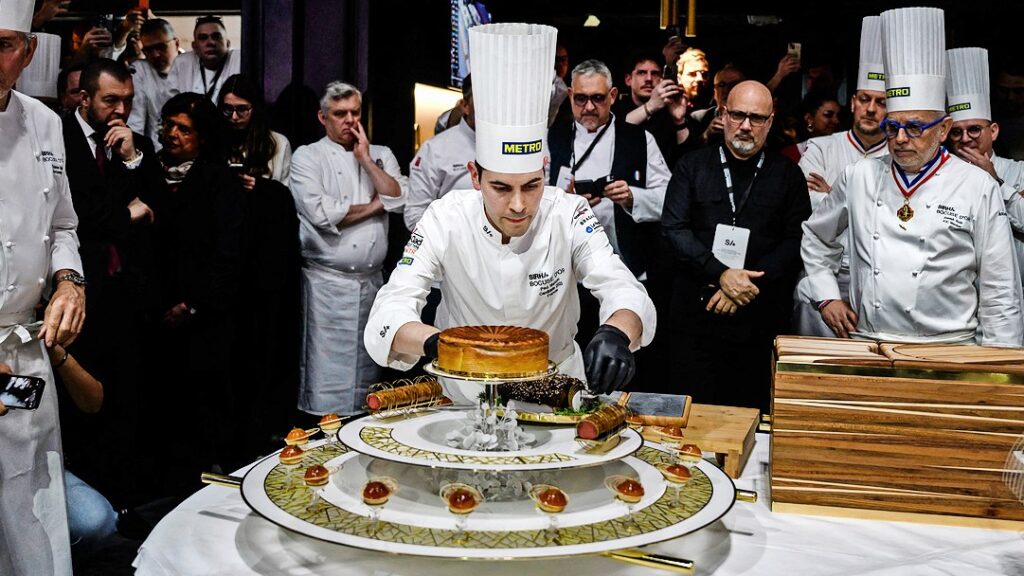You could almost hear the cheers from this side of the Channel: having lost their crown to Denmark in 2023, France had particular reason to celebrate Monday’s victory in the biennial Bocuse d’Or cookery competition, popularly known as the culinary Olympic Games. When Paul Marcon, chef of a restaurant with three Michelin stars in the Auvergne, took first place, pushing Denmark into second, French pride was restored and their gastronomy was once again crowned the best in the world.
Good for them. France has had a torrid time of it lately, what with collapsing governments and their own tourism minister admitting that their gastronomy had slid down the international table. Who could begrudge them a moment of national pride?
But hang on a minute, let’s not get carried away. Does their victory really mean anything at all? The Bocuse d’Or is, to untrained British eyes, one of the most bizarre events there is, with po-faced self-importance intermixed with football-terrace-style barracking like a giant bathos pie. Yes, France’s three-person team, consisting of “coach”, “candidate” and “commis” was adjudged the best at preparing two elaborate courses, against the clock and in front of a live audience. As required by the competition rules, they produced their immaculate lobster dish exactly four hours and 40 minutes after starting cooking and followed it up precisely 50 minutes later with their venison dish.

Marcon’s win restored French pride in front of a celebratory home crowd
JEFF PACHOUD/AFP/GETTY IMAGES
But the competition, held in a Lyons exhibition hall, resembles less culinary awards and more Eurovision Song Contest with a side of Seventies-era It’s a Knockout in for good measure. The teams must parade 16 “artistically arranged” plates of each course throughout the arena on silver trays like toque-wearing lovelies at a beauty contest. Meanwhile, the boisterous crowds, most in fancy dress and draped in national flags, cheer every mise en place with cowbells, alpine horns and whistles. In 1997 the Mexicans pitched up with a whole mariachi band. The noise is incredible and would be like Marcus Wareing and Monica Galetti screaming in chefs’ ears as they attempt the MasterChef skills test.
It’s hardly an even playing field for all the teams either. Let us leave aside the fact that France has an invariable home advantage, or indeed that they set the rules. When the competition was introduced in 1983 by the celebrated chef Paul Bocuse as a way of bringing a little va-va-voom to a dull, old culinary sector exhibition and trade fair, the winning nation was barred from entering the next contest. Right up until the moment in 1999 when France, which had won every contest they entered, lost to an unfancied Norwegian team. A quick rule change swiftly followed to guarantee more chances of a French win (they’ve won 9 out of the 20 Bocuse d’Ors so far).

Marcon followed in the footsteps of his father, who won the Bocuse d’Or in 1995
JEFF PACHOUD/AFP/GETTY IMAGES
Far more divisive is the amount of money the countries choose to throw at their teams. While we in this country display a laissez-faire approach to our entries, leaving the entrants to sink or swim with a few thousand pounds in sponsorship scrambled together from food suppliers and industrial fridge manufacturers, other countries bring the wealth of the nation into play. France, Denmark and Norway, the dominant countries in the competition, invest proper money. France threw €500,000 at their team this year, allowing them to spend six months to prepare, with mental, physical and tactical training sessions and dozens of run-throughs of their dishes. (Not that that guarantees victory; America apparently had a million-dollar budget back in 2011 and still only came tenth.)
France will have a further advantage in future years with the creation of a €23 million cooking academy near Lyons specialising in big competitions. The National Gastronomy Centre has been compared to the French National Football Institute and officials say they hope to find the new Kylian Mbappé of cuisine. Perhaps they’ll use it to teach football chants to a new generation of fans as well.
• Ooh là là! Saucissons and frogs’ legs are back
Meanwhile, our nation of plucky underdogs will keep plugging away. We have never made it on to the podium but Tom Phillips, executive chef at the two-Michelin-star Restaurant Story in London came a very respectable fifth this year. Perhaps we need a change of leadership to fine-tune our challenge. I understand Gareth Southgate has a track record of improving our standing in Europe.

